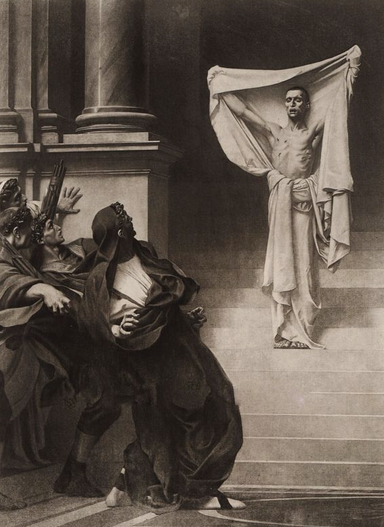The Martyrdom of St. SebastianSomeone had put a scythe to the sweet grass--
its torn blades, like fistfuls of emerald fire, bled into summer dusk the scent of something half-remembered, while crows drifted in wide arcs as if to mimic the farmer who paused in his work to watch them thrust toward sun, their hollow feathers like those which kept the sleek Mauretanian arrows true as soldiers kissed each silver tip pulled from quiver, to bow, to level with their squinting eyes on the Palatine Hill, each shaft singing against the small breeze, going deep as love into the young boy’s flesh, slim thighs, chest oiled with sweat, one blade ringing against the bones of his left ankle like a grim toast, though his executioners were less cruel than drunk on sour wine which spilled, almost black in the half-light, from earthen jugs, Sebastian’s hands drawn tight above his head with three straps of fine leather, one arrow driving hard into the pit of his arm, though even then he refused to break, would not look away from that final, beautiful light which sent copper spears into the feathery clouds; and when the moon began to rise the soldiers left him for dead or for the faces of exotic women veiled in showers of perfumed hair so that the faithful crept out of the sheltering black and cut him from the wounded tree, brought him back from the light he wished to fly into, though he was intent on death’s certain fame and appeared, weeks after, before the emperor, opening his robes to flaunt a scar on his groin which resembled a crow, until he was beaten with clubs, cast into a common sewer where he was later found, though this time, he could not come back. Finally, in death, he was broken, not by unbelief, but by young men with names like swift rivers who fingered the dark silk of his hair, then severed him from himself. Head to the west. Heart to the south. |
